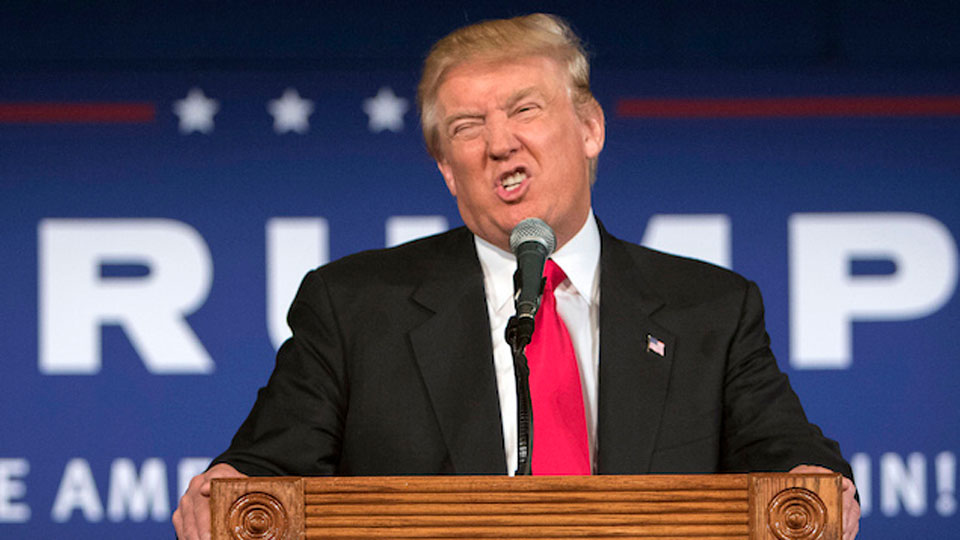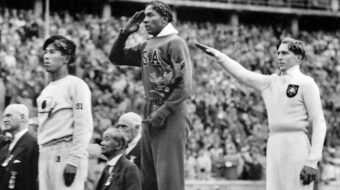
WASHINGTON—Donald Trump’s White House is – at best – dysfunctional. We knew that even before Bob Woodward’s explosive new book about it, Fear.
And Donald Trump is crazy. That’s new – and it’s a problem not just for the GOP president’s staff, but for the country.
The book, excerpts of which were published in the Washington Post on Sept. 5, shows a Trumpian White House filled with infighting, feuds, hatreds and more. The book will be published Sept. 11.
“When you put a snake and a rat and a falcon and a rabbit and shark and a seal in a zoo without walls, things start getting nasty and bloody,” Trump’s first chief of staff, Rance Priebus, is quoted as saying.
But when you have a president who, a month after taking office, demands that the chairman of the Joint Chiefs of Staff present him with a plan for a pre-emptive military strike on North Korea – which would have restarted the shooting war on the Korean peninsula and possibly led to a nuclear war – you have an even larger problem.
Woodward’s book paints a picture of a braggart and lying president who is also so full of himself that he twists, or denies facts and truth. He’s also so self-important that even though the ongoing probe of Russian sabotage of the 2016 presidential election, and Trump campaign collaboration with it, has sent the president over the top, he still wants to testify before special counsel Robert Mueller.
Trump’s former counsel, John Dowd, after a prior 30-minute mock query session which caught the president in numerous contradictions, half-truths and outright lies, tried to talk him out of it, Fear says.
“Don’t testify,” Dowd told Trump, Woodward quoted him as saying to the Oval Office occupant. “It’s either that or an orange jumpsuit.” “I’ll be a real good witness,” Trump replied. “No, you are not a good witness. Mr. President, I’m afraid I just can’t help you,” Dowd said. Dowd resigned the next day.
Richard Nixon was never like this.
In The Final Days, another book, 40 or so years ago, that Woodward co-authored with fellow Watergate investigative reporter Carl Bernstein, Nixon – in the last weeks of his presidency as Watergate and his responsibility for the cover-up came crashing in – is portrayed as often drunk, often depressed, given to maudlin sentiment, often angry and in the end walking the halls, talking to the presidential portraits.
And remember the scene of Nixon, stretched, praying and crying, with Henry Kissinger next to him, on the rug of the Lincoln Bedroom in the White House the night before he resigned? Or Nixon’s mournful, meandering public farewell to his staff the next morning, on national television, Aug. 9, 1974?
In the end, Nixon’s aides, principally White House Chief of Staff Alexander Haig, were concerned enough about his mental state that they discussed how to keep Nixon away from the “nuclear football,” the briefcase that contains the secret codes that could launch a nuclear war.
In the new book, Trump’s aides and even Cabinet officers spend much of their time hiding documents, removing them from his desk before he saw the decision memos, lest he fly off the handle and enunciate policies that could hurt the administration, the country, or both. Sometimes they just plain had to agree with him over the phone, then disobey him. That’s what Defense Secretary James Mattis and others did.
They also saw what can only be described as machismo writ large. Just months after Trump rattled Joint Chiefs Chairman Joseph Dunford with his demand for a plan to strike North Korea, Trump described the conflict there in personal terms against Korean leader Kim Jong Un – conveniently forgetting, if he ever knew, about the thousands of U.S. troops and millions of Korean people who would be killed and maimed in a war.
“This is about leader versus leader. Man versus man. Me versus Kim,” Trump said.
And Trump spends much of his time trashing his political foes, in extremely hateful terms, as well as his staff. At one point, he accused the late Sen. John McCain, R-Ariz., of getting his release as a Vietnamese prisoner of war before his fellows, contrary to military codes – and the opposite of what McCain actually did.
“No, Mr. President, I think you’ve got it reversed,” Mattis, himself a former general, replied. In one of Trump’s few admissions that he was wrong, the president replied, “Oh, OK.”
And in one notable instance of outright disobedience, Trump called Mattis in April 2017, after Syrian President Hafez al-Assad launched what was described to him as a chemical weapons attack on civilians – a description contradicted by sources on the ground – and launched into an expletive-filled tirade.
“Let’s f—ing kill him!” Trump said of Assad. “Let’s kill the f—-ing lot of them,” he ordered. Mattis said he would “get right on it,” Woodward wrote. Then he hung up and told his staff: “We’re not going to do any of that. We’re going to be much more measured.” The result was a conventional airstrike against Assad’s bases.
There is another Nixon comparison, though, from Craig Shirley, a conservative, Reagan biographer and author. It came in March, months before Woodward’s book, in an article in The American Conservative.
“In Nixon’s last days, he could be found wandering alone through the White House, muttering to portraits of presidents past. Trump isn’t there yet, but with the loss of Hope Hicks, the exile of Jared Kushner, the potential loss of Gen. H. R. McMaster and the attacks on Chief of Staff General John Kelly, he is walling himself off, just as Nixon did,” Shirley wrote.
“The hallways Donald Trump walks are certainly getting lonelier and lonelier, and though he isn’t speaking to the presidential portraits as far as we know, the ghost of Richard Milhous Nixon is walking with him.”












Comments